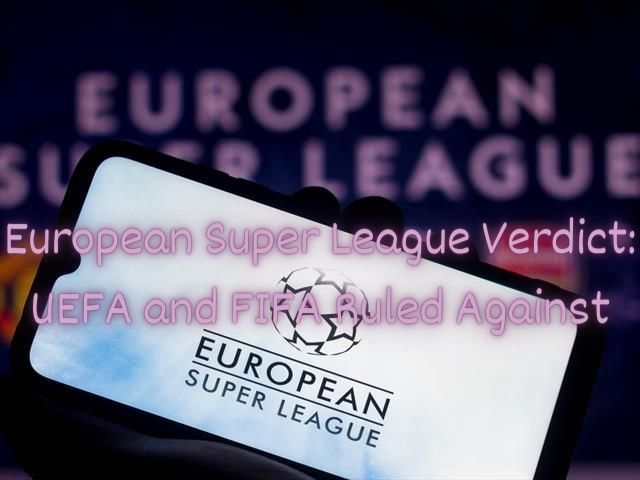European Super League: Uefa and Fifa rules banning breakaway league unlawful, says court

The European Court of Justice (ECJ) has ruled that banning football clubs from joining a European Super League (ESL) was unlawful, asserting that UEFA and FIFA were “abusing a dominant position.” The case was brought by the ESL and its supporters, who argued that UEFA and FIFA were violating competition law by threatening sanctions against those participating in the breakaway league.
The ECJ, the highest court in the European Union, found against UEFA and FIFA, stating that this did not automatically approve a breakaway league. This decision is perceived as a setback to the authority of UEFA and FIFA in governing the game.
UEFA expressed confidence in the strength of its rules implemented since the ESL proposal, assuring compliance with relevant European laws. They trust that football’s existing structure will be protected against breakaway threats by European and national laws.
Barcelona, one of the original ESL clubs, sees the verdict as paving the way for a new competition. ESL backers A22 have released revised proposals, including a women’s European tournament with a league system involving promotion and relegation for both men’s and women’s competitions.
The initial ESL, designed as a midweek competition with 12 founding clubs, faced backlash for exclusive privileges and perceived greed, leading to widespread protests. The ECJ report emphasizes that FIFA and UEFA must ensure transparent, objective, non-discriminatory, and proportionate powers when new competitions potentially enter the market.
The report states that FIFA and UEFA, lacking such criteria, are abusing a dominant position, and their rules on approval, control, and sanctions are unjustified restrictions on the freedom to provide services. However, the ruling does not specifically address the approval of the Super League project.
Bernd Reichart, CEO of A22, claims the ESL has won the right to exist, asserting that UEFA’s monopoly is over, and clubs are now free from sanctions and able to determine their future. Real Madrid, still interested in the ESL, welcomed the ruling, stating that clubs are now the “masters of their own destiny.”
The ESL controversy began in April 2021, involving 12 teams, including English giants. Despite initial fines by UEFA, the plans collapsed within 72 hours due to widespread condemnation. Real Madrid and Barcelona remain interested in the ESL, while La Liga emphasizes the need for an open format in European football.
Picture Courtesy: Google/images are subject to copyright
